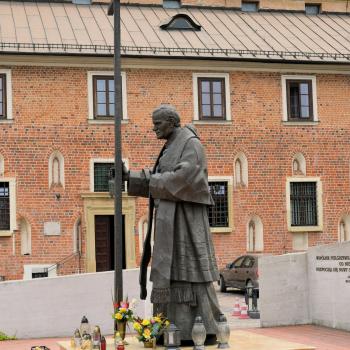Editors' Note: This article is part of the Public Square 2014 Summer Series: Conversations on Religious Trends. Read other perspectives from the Patheos community here.
What are the major issues faced by the LDS Church? Where to start? A host of issues surround LGBT questions. There are the recently highlighted questions of women's place in the Church. Race remains a huge question, though one that is often overlooked and one that may, perhaps, be on the mend.
What about the global growth of the Church, with so many no longer sharing the culture and language of what, for over a hundred years, has been assumed to be the native culture of Mormonism? In another hundred years, or even fifty, will it continue to make sense for English to be the lingua franca of the Church? How will the even larger entity that the LDS Church is on its way toward becoming be administered effectively? More central to Mormon identity, what kind of cohesion will a church lacking a common cultural and linguistic heritage across its congregations and amongst its leaders have?
Mormons today are tribal: wards are like villages, and when away from our village, we seek out the familiarity, comfort, and protection offered by other Mormon villages. We are looking for our larger family. Those we find may look and sound different than we do, but we share a common culture. How much of that is due to the common inheritance that we now share via church administration and church-provided lesson and administrative materials? To put it crudely, as we grow, those within the pale of the West will see things one way; those outside another. And the two are likely to have difficulty speaking with one another.
Like every religion, especially in the West we face the issue of how to deal with our increasingly secular world, not just legally, but in the way that all of us understand our relationships to each other and to everything else. Mormons often see this difficulty through the lens of religious freedom. The Church is vigilantly on the watch to preserve religious freedom, and it has reason to be. There are genuine attacks on religious freedom, some but not all of them the consequence of state secularism. But even those attacks that come from secular states don't boil down merely to a matter of having secular laws. It is more a matter of being in a world in which religion doesn't make sense. That is where new laws and the reinterpretations of old ones come from. It is a worldview rather than just an attitude within the world. How do we translate our testimony of Christ into words and works that those who do not have ears to hear can hear, whether they are inside or outside the Church?
Along with social, racial, and gender questions Mormons are struggling with issues of global expansion. Like every religion we struggle with rapid secularization. In response to all these, we will continue to rely on continuing revelation. That is no quick fix. Change can sometimes be quick and relatively painless, as it was in 1978 when the revelation was announced that extended the priesthood to all worthy males. But as the 19th-century difficulties surrounding giving up polygamy demonstrate, sometimes revealed change is neither easy nor painless. The human is bound up in every aspect of revelation. For good and bad they cannot be disentangled. In spite of that, our necessity remains the same: listening to the Holy Spirit. That will be the origin of any solutions we find to the problems of the future.
9/3/2014 4:00:00 AM





